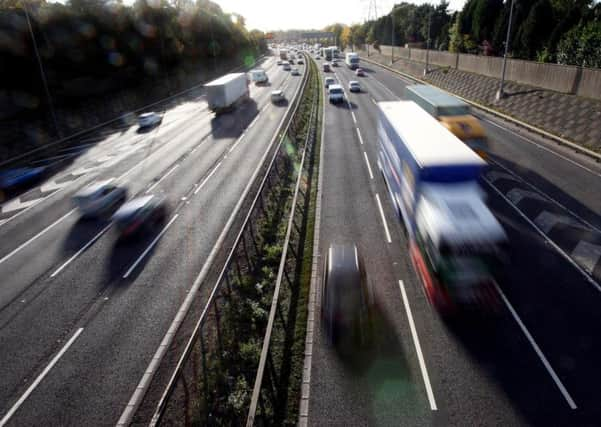Neil McNicholas: No excuses for breaking 70 mph motorway speed limit


It was just three days before Christmas and many motorists at the time will have seen it as a most unwelcome present. Indeed whoever dreamt up the idea must have attended the same School for Scrooges as the Minister who introduced the policy of sending out income tax demands also just before Christmas! What is it with the Civil Service?
The speed limit was actually intended to be only a four-month trial, but when the casualty rate fell by 20 per cent the limit was made permanent by Transport Secretary, Barbara Castle, in 1967 and remains in place to this day. But it was as unpopular then as it appears still to be now. Why might that be?
Advertisement
Hide AdAdvertisement
Hide AdAs I have been wont to comment in these pages before, there is out there a club for anarchists who, experience shows, simply refuse to drive within the legal speed limit which they obviously feel only applies to everyone else.
They don’t have the self-discipline to do as they are told in the first place, a failing that no doubt could be traced back to an un-disciplined childhood. And, indeed, why should they keep to the limit when, as their experience shows, it doesn’t make any difference because nothing ever happens when they don’t. At least it didn’t used to until speed cameras were introduced - which are their nemeses.
Their position seems to be that they should be able to break the speed limit with impunity unless there is a gaudily marked police car, fluorescently visible for miles around, giving them ample opportunity to slow down.
Any other means of monitoring their lawlessness is considered underhanded, sneaky in the extreme, and totally unacceptable to them. There are no regrets about breaking the law, just about being caught breaking it.
Advertisement
Hide AdAdvertisement
Hide AdIt is often claimed that speed cameras are merely a “cash cow” for the local police force, but more importantly they are a modern technological means - in the absence of adequate numbers of police patrols - of calling to account those who blatantly ignore speed limits and may be putting others’ lives at risk in the process.
It might be claimed that this is a very different situation to being caught driving just a few miles an hour over the limit. Indeed if someone has little regard for the limit their speed is likely to be well in excess of it rather than just two or three mph.
However a limit is a limit, the maximum speed permitted. Why drive at 70 and risk inadvertently doing 75 when you could do 65 and still be within the law if your speed were to drift up to 70?
Nor is it any defence to expect there to be a 10 per cent margin of error. That used to be an unofficial allowance back in the days when cable-driven speedometers weren’t always very accurate, but, again, why drive on the limit at the risk of exceeding it, when you could drive below the limit without that risk?
Advertisement
Hide AdAdvertisement
Hide AdYou can’t even trust modern electronic speedometers to be entirely accurate - though they should be. I regularly pass a couple of matrix signs in town that tell you what speed you are driving and they rarely agree exactly with what my speedometer says. Which is correct? If I can’t be absolutely sure, then the answer is to keep my speed well within the limit just in case.
The bottom line is that the posted limit is the limit and not a little over it or even 10 per cent over it. A recent study showed that the most economical driving speed in terms of fuel consumption is between 40 and 55 mph. I would suggest that this is also a far more enjoyable and leisurely driving speed. The faster you drive, there’s more stress, higher blood pressure, less time to think and adjust to unexpected situations – and speeding drivers! A lower, more controlled speed, is surely also a safer speed.
All of this begs the question as to why manufacturers produce cars for sale in this country which are capable of speeds well in excess of 70 mph when that is the fastest you can legally drive here?
It was the consequences of people driving at high speeds that brought about the introduction of the 70 mph limit in the first place. Fifty years down the road have we reached a situation where, because so many drivers seem to have so little regard for the law and the possible consequences of speeding, that we may have to have governors fitted to our cars to make us comply? I hope not, but the answer is in our hands.
Father Neil McNicholas is a parish priest in Yarm.